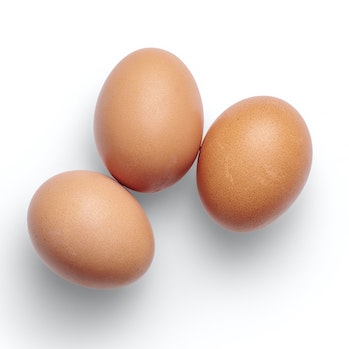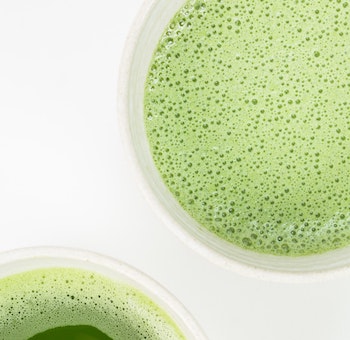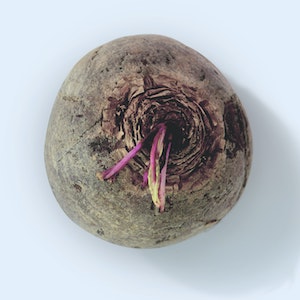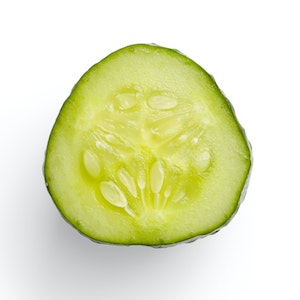
The 5 Best Foods To Eat
After a Sleepless Night
A bad night can leave you feeling foggy, wired and totally off your game. But what you eat the next day can either help you recover – or make things worse. Here are 5 foods to eat after a sleepless night – smart choices to support your energy, mood and sleep.
When you're running on empty...
We all have sleepless nights now and then.
Maybe you struggled to switch off your brain, woke up at 3am for no reason, or just didn’t sleep as deeply as you needed.
And today you’re running on fumes – low energy, low mood. So you reach for quick fixes like caffeine and sugar just to stay upright.
Sound familiar?
The problem is, those “fixes” often backfire. Not only can they make you feel worse an hour or so later, they can also mess with your next night’s sleep.
But there is good news to share, even if you’re reeling after the worst sleepless night: certain foods can support your energy, mood and focus – without sending you into a crash.
Here are 5 of the best foods to eat after a sleepless night, and when to eat them for maximum effect.
What To Eat After a Sleepless Night

1. Eat eggs at breakfast
Get your sleep-wake hormones in better shape
Managing your cortisol levels is key to recovering after a restless night.
Cortisol is one of two main hormones that regulate your sleep-wake cycle (the other is melatonin). Normally, cortisol rises in the morning to help you wake up, and gradually falls later in the evening to help you prepare for sleep. Unfortunately, sleep deprivation, stress and caffeine can disrupt this natural rhythm, leaving you wired when you want to rest.
Thankfully, certain foods can help support balanced cortisol levels.
Start your day with eggs, berries, and other low glycaemic load (GL) fruits and vegetables. These nutrient-dense options provide steady energy without the blood sugar spikes caused by high-salt, fatty or sweetened options like bacon, sausages or cereals.
What to do: Eat 2 poached eggs with spinach, and a handful of berries for a breakfast that fuels your body and soothes your hormones.
2. Drink beetroot juice at elevenses
Boost oxygen glow to your brain and muscles
Feeling foggy and sluggish mid-morning? Beetroot juice can help.
Beetroot is rich in nitrates, which your body converts into nitric oxide. The result? Widened blood vessels and improved oxygen flow. This can sharpen your focus, ease muscle fatigue, and over time, improve exercise stamina.
Note: concentrated beetroot shots aren’t suitable for everyone. Check with your doctor if you have low blood pressure, take blood pressure meds, or have kidney stones.
What to do: Drink a small glass of beetroot juice mid-morning. Dilute to taste if you prefer.
While you can’t ‘catch up’ on lost sleep, how you eat the next day can make a real difference to how you feel – and how well you sleep the next night.
3. Eat a Crunchy Veg & Dip at midday
Stay full and focused while keeping blood sugar (and cravings) steady
A crunchy vegetable and dip combo – think creamy guacamole, hummus, or pesto – makes an ideal afternoon snack. It offers protein, healthy fats, and low-GL carbs to help stabilise blood sugar and sustain your energy.
Plus, the satisfying crunch isn’t just enjoyable – research suggests that eating crunchy foods may help you feel fuller faster, which can prevent overeating, especially after a poor night’s sleep when cravings for sugary snacks often increase.
What to do: Slice 1/4 cucumber and 1/4 red pepper to have alongside a small serving of your chosen tip.
4. Sip Green Tea at 4pm
Get a gentle lift without the late-day caffeine crash
When the afternoon slump hits or your first coffee buzz fades, swap that extra cup for green tea.
It delivers a gentler caffeine lift plus l-theanine, an amino acid that calms the brain and supports focus.
Green tea is also packed with antioxidants and anti-inflammatory compounds – perfect for combating the oxidative stress caused by lack of sleep.
What to do: Brew a cup of your finest green tea. Take a break, relax and enjoy.

5. Eat Pumpkin Seeds in the Evening
Ease into a calmer, more restful night with magnesium
Sleep deprivation depletes magnesium, a mineral that supports your nervous system by boosting calming neurotransmitters like GABA and relaxing your muscles.
Eating magnesium-rich foods in the evening is a great strategy to help you wind down and relax.
Foods like pumpkin seeds, sesame seeds, black beans, avocado and kale are all reoch in magnesium. A 28g serving of pumpkin seeds provides about 150mg of magnesium – more than a third of your daily needs.
What to do: Sprinkle 1 tbsp of pumpkin seeds on soups, stews, veg or salad at dinner, or have with natural yogurt after your meal.
The Bottom Line
Sadly, the odd bad night’s sleep is unavoidable Whether it’s stress, hormones, or simply a restless mind, most of us will face the occasional night of tossing and turning. And while you can’t exactly“catch up” on lost sleep, how you eat the following day can make a real difference to how you feel – and how well you sleep the next night.
Starting your morning with protein-rich eggs and low-GL fruit like berries can help stabilise your blood sugar and support healthy cortisol levels. And by evening, if you’re eating magnesium-rich pumpkin seeds, you’ll be priming your body to relax and rest.
So, next time you wake up feeling foggy and out of sorts, skip the sugar-laden quick fixes. Instead, reach for foods that actively support your recovery – and give your body the best chance of a better night ahead.

These five foods (and drinks) can help you get through the day when you’re sleep-deprived – without overstimulating your system or making things worse later.
Would you eat all five? Or just start with one? Personally, I’d be scrambling some eggs.
Let me know – what’s your go-to after a rough night? Leave a comment below, I’d love to hear.
After the much-needed indulgences of Christmas and the excitement of the New Year, it can take a while to get back into a regular bedtime rhythm. Adding another national lockdown into the mix doesn’t help, and might have thrown your best intentions and plans into further disarray.
The daytime could be fine – you find the never-ending need to be flexible and adaptable pushes many worries out of your mind. However, when nighttime comes and doubts or uncertainties loom large, you find yourself tossing and turning, and in for yet another sleepless night.
But a day of exhaustion, fatigue, bleary eyes and a short temper is NOT what you need right now.
Especially if you end up downing an extra cup of coffee (or 3!) and a bar of chocolate, just to survive till the evening, only to find these stimulate you and interrupt your sleep the next night.
If this sounds far too familiar, and you’re feeling fed up, the good news is that it’s possible to break out of this vicious circle.
There are foods you can eat to help you recover after a sleepless night (and a few that you’ll absolutely want to avoid).
Eat EGGS for breakfast
 Managing your cortisol levels is key to recovering after a rubbish night’s sleep.
Managing your cortisol levels is key to recovering after a rubbish night’s sleep.
Cortisol is one of two hormones which regulates your sleep-wake cycle (the second is melatonin) and typically levels rise to help you wake up, and fall later in the day in time for you to go to bed. Unfortunately, one of the effects of sleep deprivation (and stress and caffeine too) is to disturb the natural ebb and flow of your cortisol levels leaving you wide awake the following night.
Fortunately, there are lots of tasty foods that help reduce cortisol and maintain a healthy level, such as eggs, berries, and other low-GL fruit and veg. Animal protein and foods which are rich in salt, fat and refined sugars are known to disturb it. So ditch the bacon, sausages and sugary cereal and switch to poached eggs, spinach and berries at breakfast instead.
Eat BEETROOT for elevenses
 Have you noticed how everything takes so much more effort after a night without sleep? One way to overcome this brain drain and muscle fatigue is with a beetroot boost. Rich in nitrates, which are then converted to nitric oxide, beetroot helps dilate blood vessels and increase your oxygen flow. You’ll think more clearly, your muscles will work more efficiently, and over the long term your stamina to exercise may improve.
Have you noticed how everything takes so much more effort after a night without sleep? One way to overcome this brain drain and muscle fatigue is with a beetroot boost. Rich in nitrates, which are then converted to nitric oxide, beetroot helps dilate blood vessels and increase your oxygen flow. You’ll think more clearly, your muscles will work more efficiently, and over the long term your stamina to exercise may improve.
However, concentrated shots of beetroot juice aren’t for everyone, particularly if you have low blood pressure, are on blood pressure meds or have kidney stones.
Eat CRUNCHY VEG (and your favourite dip) as an afternoon snack
 A veg and dip combo (think guacamole, humous or pesto) makes the perfect snack to keep you sustained in the afternoon – providing proteins and low-GL carbs to help balance your blood-sugar levels, good fats to help you focus, and LOTS OF NOISE. Research shows that behaviours around food are influenced by what you hear, and it’s been suggested that eating crunchy foods can help you feel full faster [1]. This is particularly ideal after a sleepless night when the natural tendency is to eat more in general, and more sugary foods too.
A veg and dip combo (think guacamole, humous or pesto) makes the perfect snack to keep you sustained in the afternoon – providing proteins and low-GL carbs to help balance your blood-sugar levels, good fats to help you focus, and LOTS OF NOISE. Research shows that behaviours around food are influenced by what you hear, and it’s been suggested that eating crunchy foods can help you feel full faster [1]. This is particularly ideal after a sleepless night when the natural tendency is to eat more in general, and more sugary foods too.
Drink GREEN TEA at 4pm
 You’ll probably really, REALLY want coffee – that hot, bitter jolt is guaranteed to keep you awake. After the first irresistible cup, what can you drink instead? Green tea, of course.
You’ll probably really, REALLY want coffee – that hot, bitter jolt is guaranteed to keep you awake. After the first irresistible cup, what can you drink instead? Green tea, of course.
It still delivers a hit of caffeine, but this more natural option also contains l-theanine, an amino acid which soothes the brain and supports concentration. It’s like coffee with the rough edges taken out. Green tea is also packed full of anti-oxidant polyphenols and anti-inflammatory catechins, much needed molecules since a lack of sleep increases oxidation and inflammation within the body.
Eat PUMPKIN SEEDS in the evening
 Later on in the day you’ll want to switch into relaxation mode, and this is where magnesium-rich foods come into play. Sleep deprivation is a stressor for the body, and not only floods the body with stimulating adrenaline but also depletes your magnesium stores. Eating magnesium-rich foods, like pumpkin seeds, sesame seeds, black beans, avocado and kale, helps counteract this.
Later on in the day you’ll want to switch into relaxation mode, and this is where magnesium-rich foods come into play. Sleep deprivation is a stressor for the body, and not only floods the body with stimulating adrenaline but also depletes your magnesium stores. Eating magnesium-rich foods, like pumpkin seeds, sesame seeds, black beans, avocado and kale, helps counteract this.
Firstly, magnesium promotes the release of the brain chemical GABA from the parasympathetic branch of the nervous system, which works to enhance your calm. Next, magnesium acts on the sympathetic branch of the nervous system helping your muscles to relax. It delivers a one-two sucker punch that gets you ready for bed.
A 28g serving of pumpkin seeds delivers approx 150mg of magnesium, which is more than a third of the recommended daily amount.
While you can’t turn back time and catch up on those lost hours, there are ways to eat to get through the day which won’t further disrupt your sleeping patterns in the evening. So, the next time your alarm bell rings, and you struggle bleary-eyed from bed after a sleepless night, tuck into these foods and feed your body the best that you possibly can.
<strong>We all have sleepless nights now and then.</strong>
Maybe you struggled to switch off your brain, woke up at 3am for no reason, or just didn’t sleep as deeply as you needed.
And today you’re running on fumes – low energy, low mood. So you reach for quick fixes like caffeine and sugar just to stay upright.
Sound familiar?
The problem is, those “fixes” often backfire. Not only can they make you feel worse an hour or so later, they can also mess with your next night’s sleep.
But there is good news to share, even if you’re reeling after the worst sleepless night: certain foods can support your energy, mood and focus – without sending you into a crash.
Here are 5 of the best foods to reach for after a sleepless night—and a few you’ll want to skip.
Reference
1. Spence & Shankar (2010) The influence of auditory cues on the perception of, and responses to, food and drink
Images
Mockup graphics at unsplash.com
Christina Deravedisian at unsplash.com
Matcha co at unsplash.com
Engin Akyurt at unsplash.com


1 Comment
Very interesting and lovely photographs too.